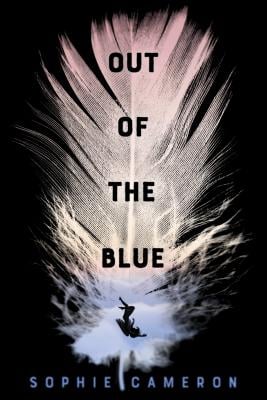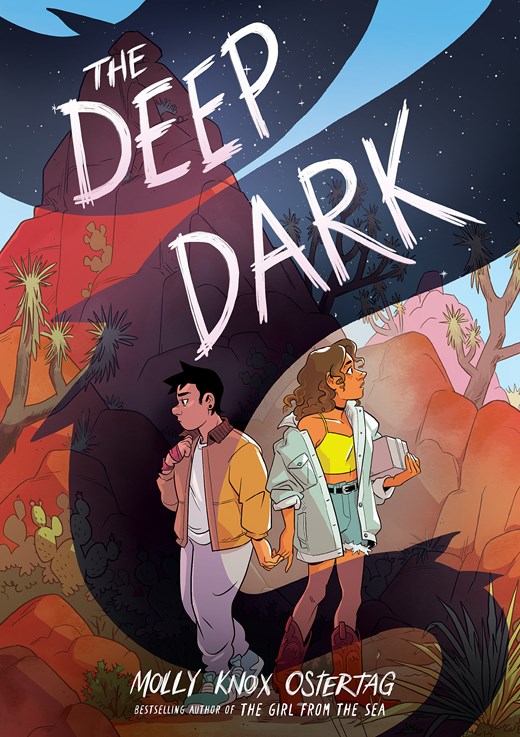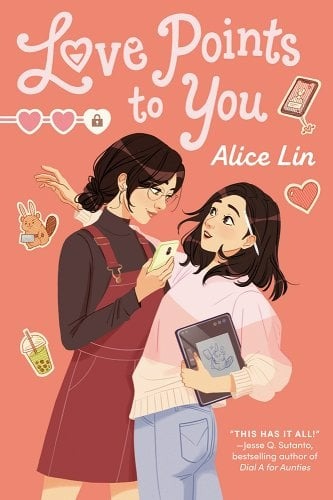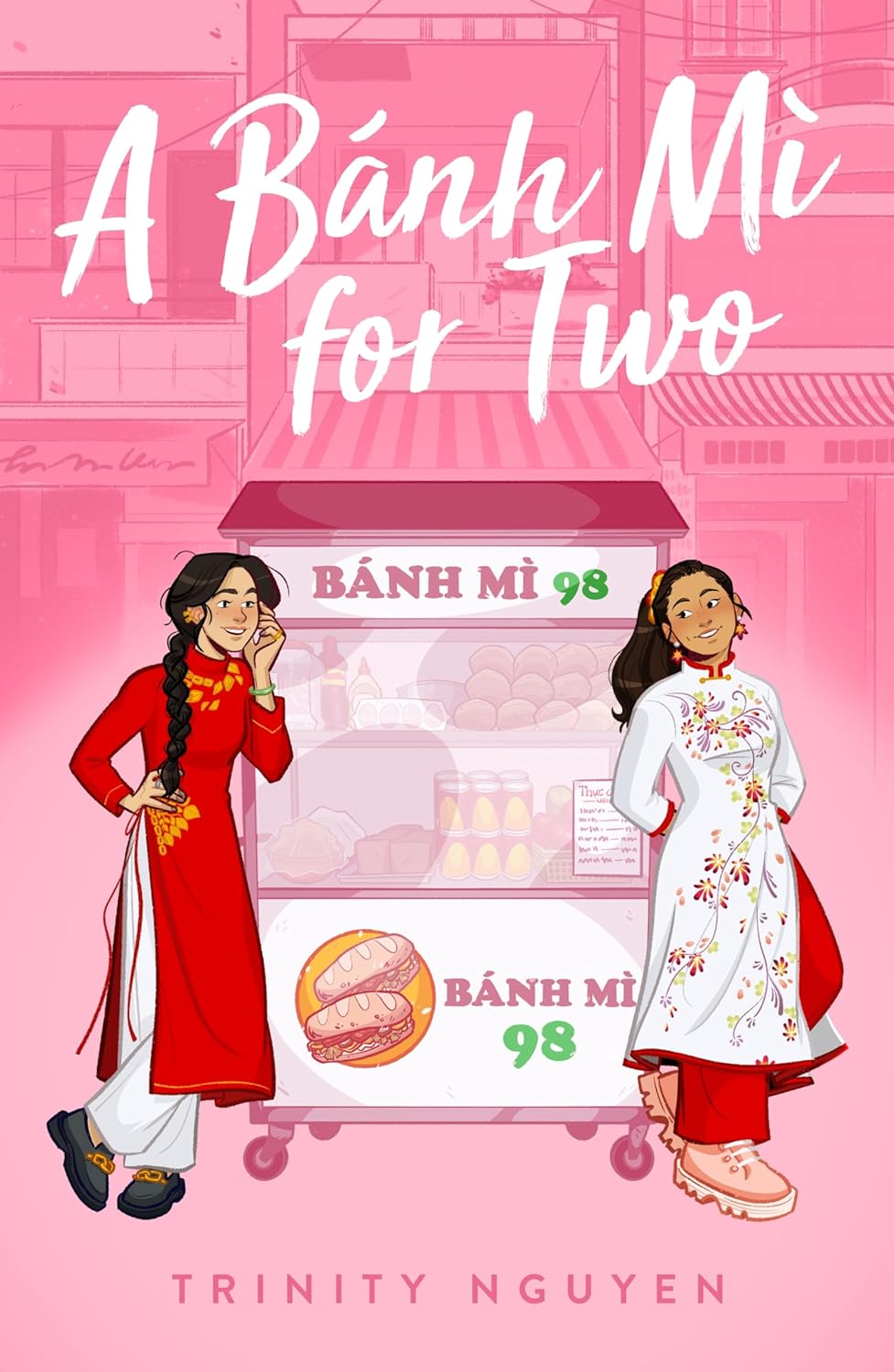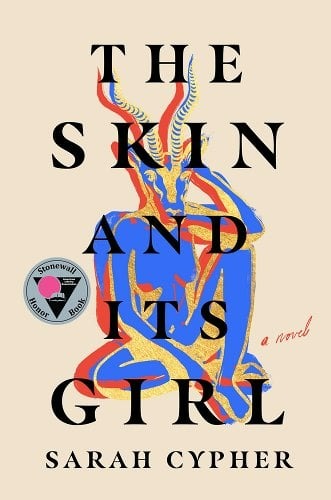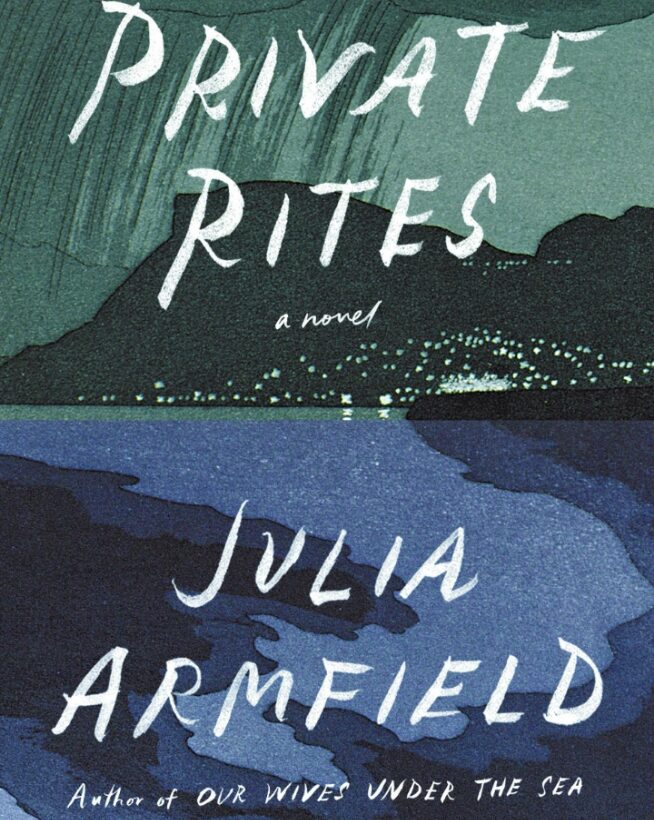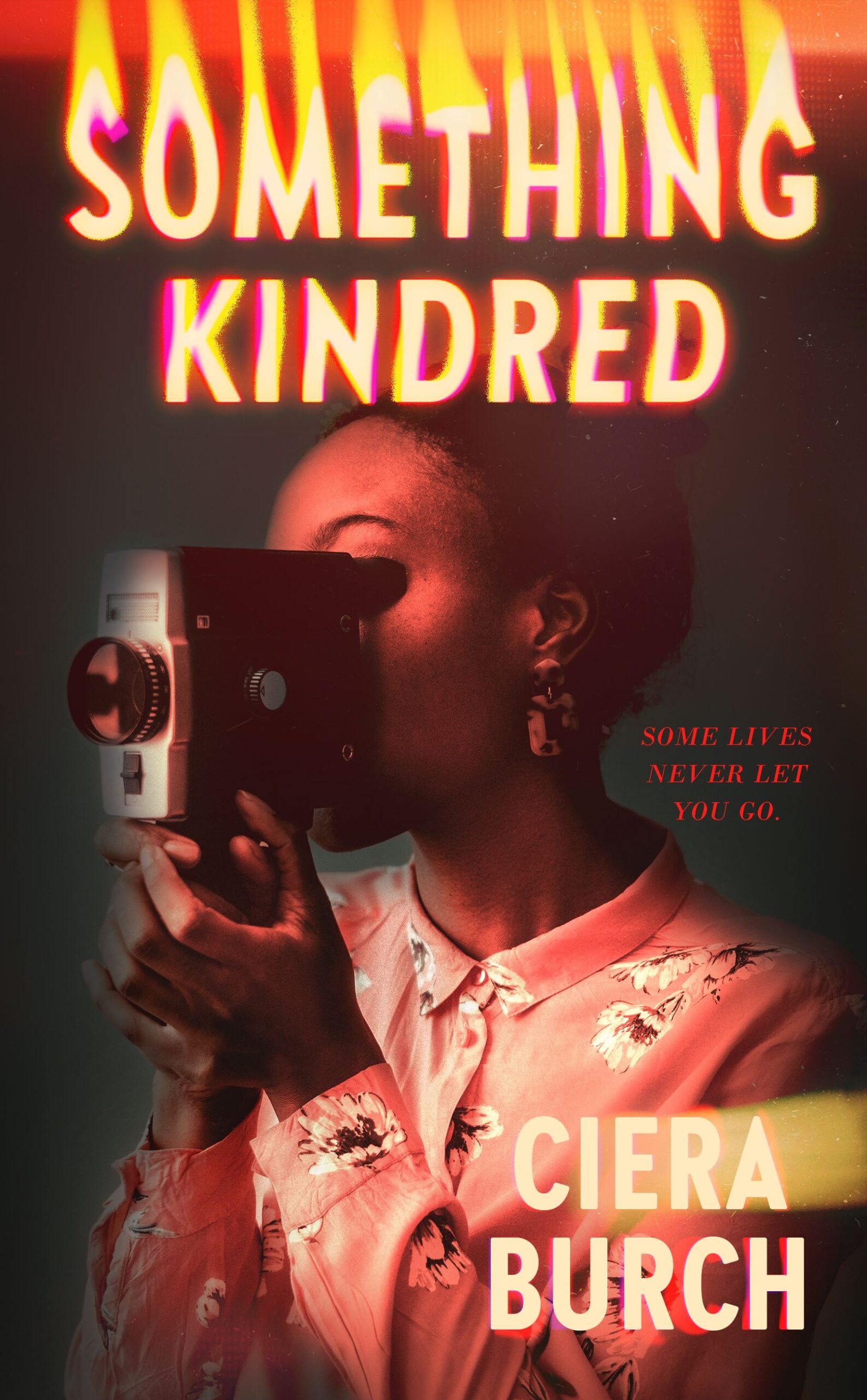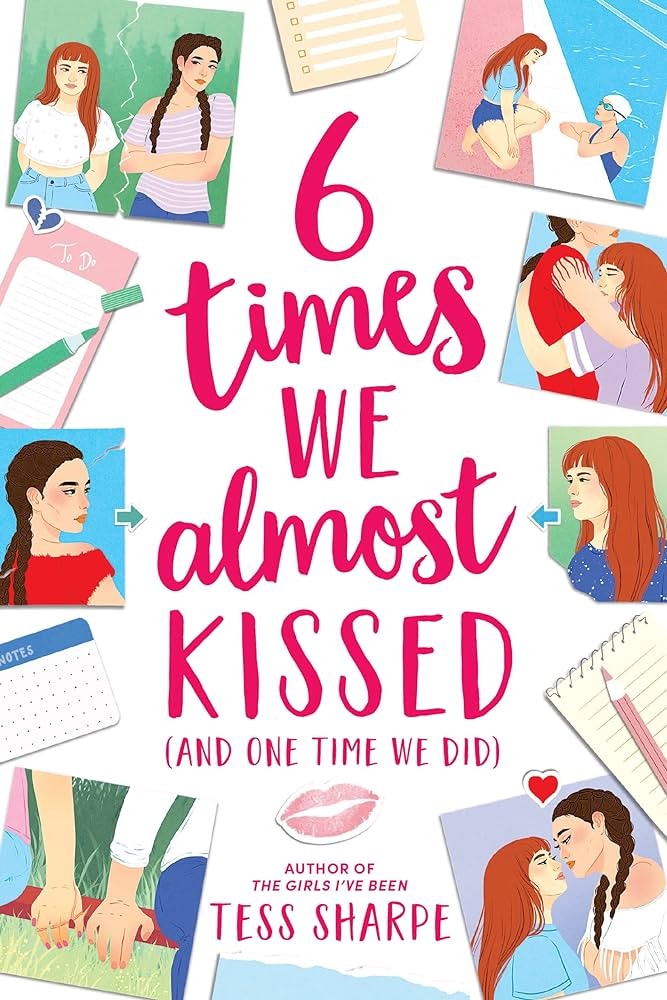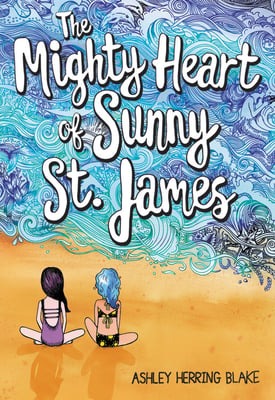Jaya Mackenzie is grappling with the heavy weight of loss and confusion. Her mother has passed away, her ex-girlfriend disappeared without a trace, and the world is in chaos as angels fall from the sky at breakneck speeds, dying upon impact. Meanwhile, her father’s obsession with capturing one of these celestial beings pulls the familyRead More
Queer, Revelatory Joy in The Deep Dark by Molly Knox Ostertag
Already a fan of Molly Knox Ostertag’s The Girl from the Sea, I had a good feeling about the weighty tome that is The Deep Dark. Friends, this poignant graphic novel delivered and then some. It’s like someone translated the sensation of waiting for the other shoe to drop and described the steps someone would take toRead More
A Sweet and Swoony YA Romance: Love Points to You by Alice Lin Review
First of all, this is of my all-time favourite YA covers. It’s so adorable. And I’m happy to say that the story delivered. We’re following Lynda, a teenager who is devoted to getting into her dream art school. Unfortunately, her father just remarried and she now has to share a room with her stepsister, Josie.Read More
A Delicious Debut: A Bánh Mì for Two by Trinity Nguyen
A Bánh Mì for Two by Trinity Nguyen (she/her) is the perfect delicacy to round out your February reading. This dual perspective debut novel follows two young women over the course of a semester as they learn more about themselves, each other, and the rich, beautiful, and complex Vietnamese culture that binds them. Lan is aRead More
A Palestinian Family’s Story Shows History Repeats: The Skin and Its Girl by Sarah Cypher
Far from the Rummani’s ancestral home of Palestine, Betty Rummani is born a striking, permanent shade of cobalt blue. That same day, the Rummanis’ centuries-old soap factory is destroyed in an air strike in Nablus. The family matriarch and keeper of all Rummani lore, Aunt Nuha, believes that the blue girl embodies their sacred history,Read More
A Haunting Gothic About Family in (Climate) Crisis: Private Rites by Julia Armfield Review
As an avid reader of all of Julia Armfield’s fiction, I was eager to pick up her newest novel. From the author of Our Wives Under the Sea (2022), Private Rites (Fourth Estate, 2024) promised to be poignant, haunting, and literary. Set in a future world where environmental disaster has flooded much of the world with ceaseless rains, threeRead More
The Queer Graphic Novel That Had Me Sobbing at 3 A.M.: The Deep Dark by Molly Knox Ostertag
Buy this from Bookshop.org to support local bookstores and the Lesbrary! You’re all fired for not tell me how good this is. I liked The Girl From the Sea, so I put a hold on Ostertag’s newest sapphic graphic novel, but I hadn’t heard anything about it, so I my expectations were pretty grounded. IRead More
A Southern Gothic Coming of Age: Something Kindred by Ciera Burch
Buy this from Bookshop.org to support local bookstores and the Lesbrary! When I picked this up, I was expecting a horror novel. And that makes sense, because it does have a lot of ghosts in it. But the ghosts are more a part of the setting than the plot; while they’re literally present in theRead More
Traumatized, Angsty Bisexuals: 6 Times We Almost Kissed (and One Time We Did) by Tess Sharpe
Buy this from Bookshop.org to support local bookstores and the Lesbrary! Penny and Tate’s mothers have always been best friends—but the same cannot be said about the daughters’ relationship. Having clashed their entire lives, they must now put aside their bickering when Penny’s mom agrees to become a liver donor to Tate’s mother, as bothRead More
A Small Middle Grade with a Big Punch: The Mighty Heart of Sunny St. James by Ashley Herring Blake
Buy this from Bookshop.org to support local bookstores and the Lesbrary! Sunny St. James has a new lease on life. In her case, this is literal after she receives a heart transplant and finally, finally has a chance to have something close to a normal summer. Swimming in the ocean, staying up late to watchRead More
- 1
- 2
- 3
- …
- 5
- Next Page »
